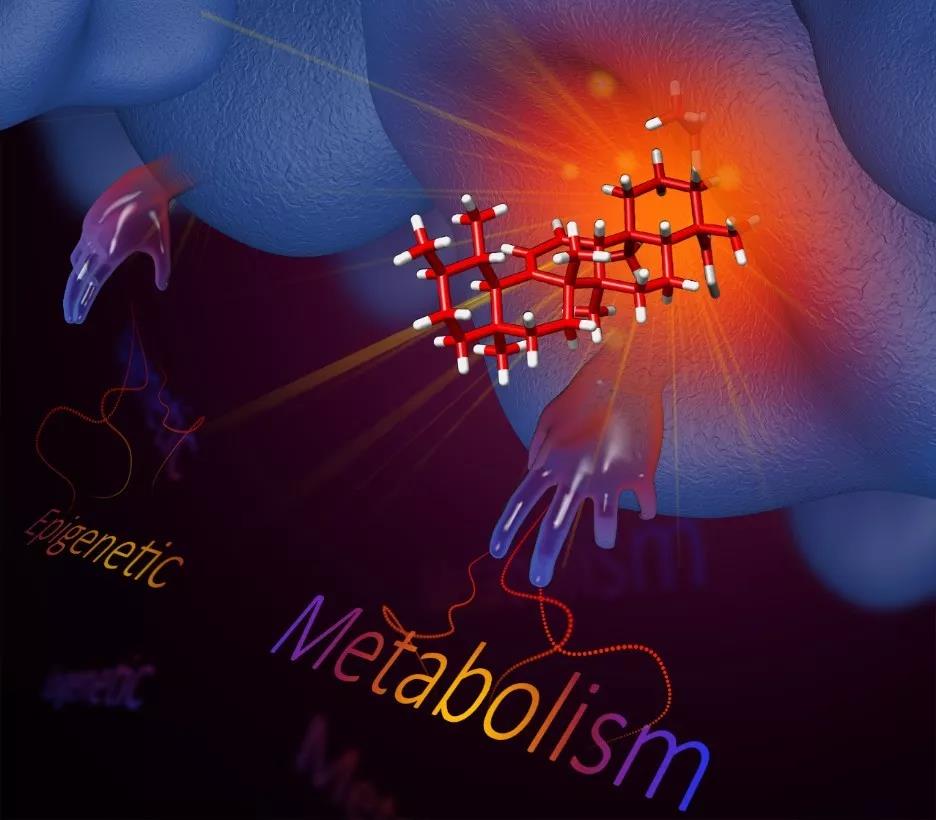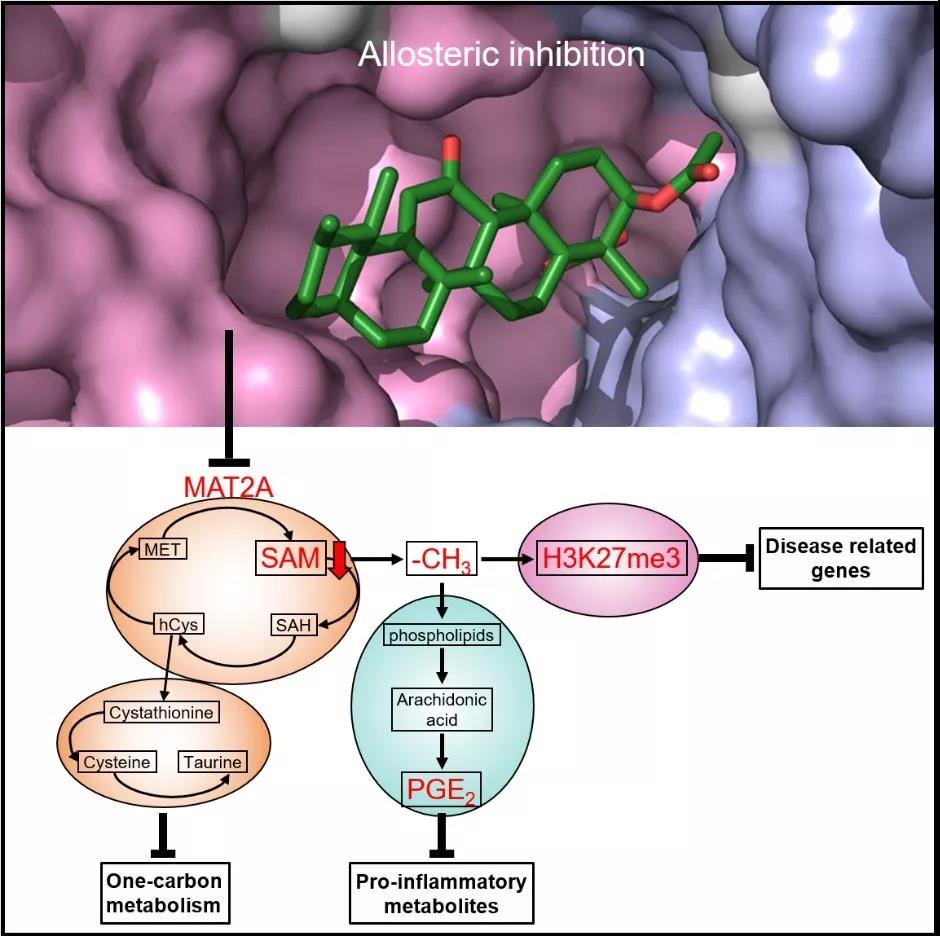Boswellic acids are traditional medicine that have long been used to treat inflammatory and infection conditions in India, Middle East and China since ancient times. Acetyl-11-keto-β-boswellic acid (AKBA) is the most bioactive ingredient of boswellic acids. Despite our previous study and others reported that some signaling pathways and/or proteins are involved in mechanisms of therapeutic effects of AKBA, such as NF-kappa B, the direct target(s) and detailed mechanism of AKBA remain unclear.
In a study published online in EBioMedicine, research team led by Dr. Honglin Wang at Shanghai Jiao Tong University School of Medicine/Shanghai Institute of Immunology, revealed the methionine adenosyltransferase 2A (MAT2A) as being one primary target of AKBA in reprogramming one-carbon metabolism of keratinocytes.
The researchers found that AKBA inhibit the enzymatic activity of MAT2A in both biochemical and cellular assays, and consequently decreased the level of S-adenosylmethionine (SAM). They also found that such intervention could reprogram the methionine cycle of one-carbon metabolism.
SAM is the primary methyl donor for histone, DNA and RNA methylation to epigenetically regulate gene expression. In addition, the researchers revealed that AKBA mainly reduced the histone H3K27 tri-methylation, thus regulating various genes involved of inflammation, differentiation and proliferation.
Moreover, through metabolomic analysis of epidermis of psoriasis patients, the researchers first revealed that dysregulated one-carbon metabolism in epidermis of psoriasis patients, indicating that one-carbon metabolism or MAT2A could be alternative target and mechanism for treatment of psoriasis.
Research assistant professor Jing Bai and Ph.D. student Yuanyuan Gao are the first authors of the article. Prof. Honglin Wang is the corresponding author. This work was supported by grants from the National Natural Science Foundation of China; the National Program on Key Basic Research Project (973 program); the Shanghai Municipal Commission; the Shanghai Municipal Education Commission; and the State Key Laboratory of Translational Medicine And Innovative Drug Development.
By Jing Bai


